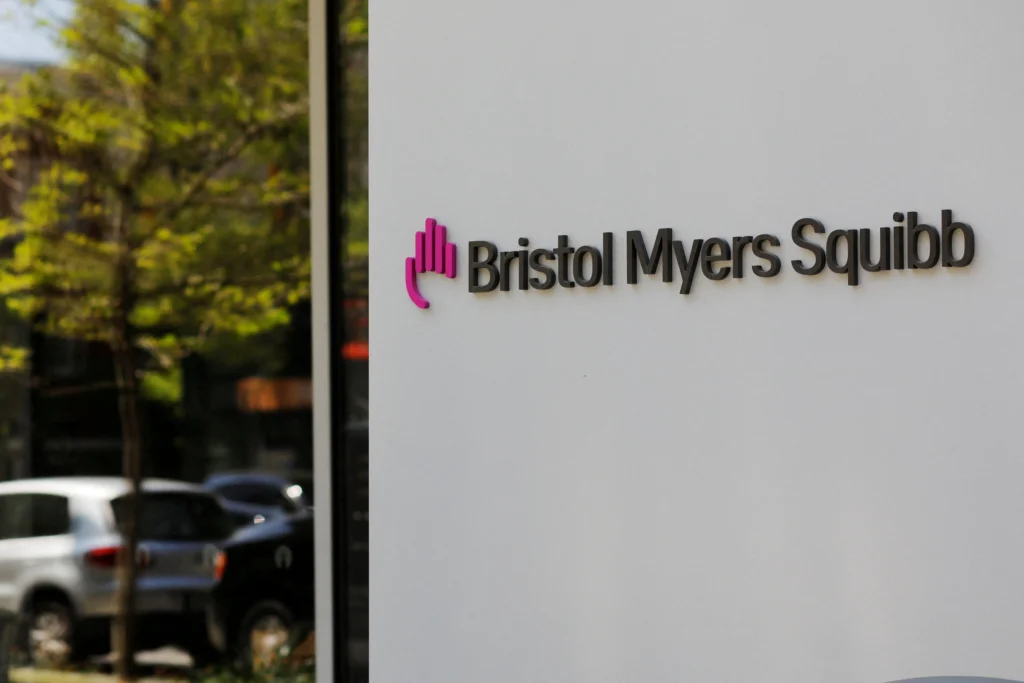
Bristol Myers Squibb Reports Topline Results from Phase 3 INDEPENDENCE Trial of Reblozyl in Myelofibrosis-Associated Anemia
Bristol Myers Squibb (NYSE: BMY), a global leader in hematology and oncology innovation, has announced the topline results from its Phase 3 INDEPENDENCE trial evaluating Reblozyl® (luspatercept-aamt) in combination with janus kinase inhibitor (JAKi) therapy in adult patients suffering from anemia associated with myelofibrosis who require regular red blood cell (RBC) transfusions. Despite demonstrating numerically and clinically meaningful trends in favor of Reblozyl, the trial did not achieve its primary endpoint of RBC transfusion independence during any consecutive 12-week interval within the first 24 weeks of treatment when compared to placebo (p=0.0674).
The INDEPENDENCE trial was designed to evaluate whether Reblozyl, an erythroid maturation agent, could address a major Bristol Myers clinical challenge in the treatment of myelofibrosis: chronic anemia that frequently results in ongoing transfusion dependence. The unmet need is significant, as patients with myelofibrosis often become increasingly reliant on transfusions over time, which can lead to iron overload, reduced quality of life, and increased healthcare burden.
Secondary Endpoints Show Promise Despite Missed Primary Endpoint
While the trial did not meet its prespecified primary endpoint with statistical significance, Bristol Myers Squibb emphasized that Reblozyl demonstrated important clinically meaningful benefits on key secondary measures. These included a greater proportion of patients achieving at least a 50% reduction in transfusion burden, or a reduction of at least 4 RBC units over a specified time, compared to placebo. Additionally, more patients treated with Reblozyl experienced an increase in hemoglobin (Hb) levels of at least 1 g/dL while maintaining transfusion independence for at least 12 consecutive weeks.
These improvements suggest that Reblozyl may offer a valuable treatment option for patients who currently have few choices to manage anemia associated with myelofibrosis, particularly when standard therapies fail or contribute to further hematologic complications.
Dr. Anne Kerber, Senior Vice President and Head of Development, Hematology, Oncology, and Cell Therapy at Bristol Myers Squibb, commented on the broader implications of the results:
“It is promising to see that Reblozyl led to clinically relevant improvement of anemia for patients with myelofibrosis, where patients often become increasingly transfusion dependent over time. We remain confident in the ability of Reblozyl to improve outcomes for patients with myelofibrosis-associated anemia and believe the totality of these results, including meaningful improvements in transfusion burden and hemoglobin levels, support the potential to address an unmet need in patients who have few treatment options.”
Encouraging Safety Profile Supports Continued Development
Reblozyl was generally well-tolerated in the INDEPENDENCE study, with treatment-emergent adverse events consistent with its known safety profile established in prior clinical studies across multiple indications. No new safety concerns emerged during the course of the trial. The tolerability of Reblozyl is a key consideration for long-term management of chronic hematologic conditions like myelofibrosis, where patients often remain on therapy for extended periods.

Given the clinically meaningful secondary endpoint results and a favorable safety profile, Bristol Myers Squibb remains committed to further advancing Reblozyl for this patient population. The company has announced plans to engage with regulatory agencies including the U.S. Food and Drug Administration (FDA) and the European Medicines Agency (EMA) to explore potential pathways for submission of marketing applications. The discussions are expected to focus on the totality of clinical evidence, including data from both the INDEPENDENCE Phase 3 trial and previous supportive studies such as the Phase 2 trial (NCT03194542), which demonstrated similar trends in improving anemia and reducing transfusion burden.
Expert Perspectives Highlight the Urgency for New Anemia Therapies in Myelofibrosis
The burden of anemia in patients with myelofibrosis continues to be a major therapeutic challenge. JAK inhibitors, the current cornerstone therapy for myelofibrosis, can improve symptoms and reduce spleen size but may exacerbate anemia in some patients. Managing transfusion dependency remains difficult, with few effective options and limited durable responses.
Dr. John Mascarenhas, Professor of Medicine at the Icahn School of Medicine at Mount Sinai and Director of the Center of Excellence for Blood Cancers and Myeloid Disorders at The Tisch Cancer Institute, underscored the significance of the INDEPENDENCE trial results:
“Anemia remains a significant challenge in the treatment of myelofibrosis, with Bristol Myers patients still dependent on red blood cell transfusions or suboptimal treatment approaches that can sometimes worsen anemia associated with the disease. Patients with myelofibrosis and anemia are difficult to treat, and these results show that Reblozyl can have an important impact on anemia associated with the disease.”
Reblozyl’s Broader Role in Treating Anemia
Reblozyl has established itself as a key therapy for multiple anemia-related indications. It is currently approved as a first-line treatment for anemia in adult patients with very low- to intermediate-risk myelodysplastic syndromes (MDS) who are naïve to erythropoiesis-stimulating agents (ESAs) and require RBC transfusions. The drug is also indicated for adult MDS patients with ring sideroblasts (MDS-RS) or for those with myelodysplastic/myeloproliferative neoplasms with ring sideroblasts and thrombocytosis (MDS/MPN-RS-T) whose anemia has failed to respond to ESAs. Additionally, Reblozyl is approved for use in adult patients with beta thalassemia who require regular RBC transfusions.
These approvals have positioned Reblozyl as a cornerstone in the treatment of chronic, transfusion-dependent anemia across multiple hematologic diseases. The emerging data in myelofibrosis represents a natural extension of its therapeutic utility and highlights its potential to fulfill a pressing unmet medical need in a difficult-to-treat population.
Future Directions and Commitment to Patients
Despite the primary endpoint miss, Bristol Myers Squibb is optimistic about the future of Reblozyl in myelofibrosis. The company’s decision to proceed with regulatory engagement demonstrates its belief that the total clinical benefit observed in the INDEPENDENCE trial—especially regarding secondary endpoints and overall safety—could justify consideration for approval in a new indication.
The company expressed gratitude to all patients, investigators, and clinical research partners who contributed to the INDEPENDENCE trial, reinforcing its ongoing dedication to collaborative innovation in hematology.
“We thank the patients, investigators, and clinical trial sites who participated in the INDEPENDENCE clinical trial,” the company stated. “Our work in hematology is guided by a commitment to developing transformative medicines that improve lives and address critical gaps in care.”
As regulatory discussions unfold and full data from the INDEPENDENCE study becomes available, the hematology community will be closely watching to see whether Reblozyl can establish a new therapeutic paradigm for patients with myelofibrosis-associated anemia—one of the most challenging complications of this progressive disease.





